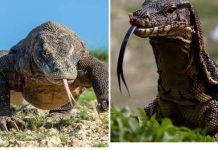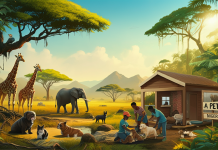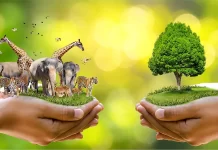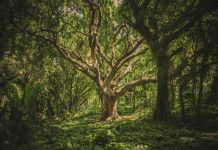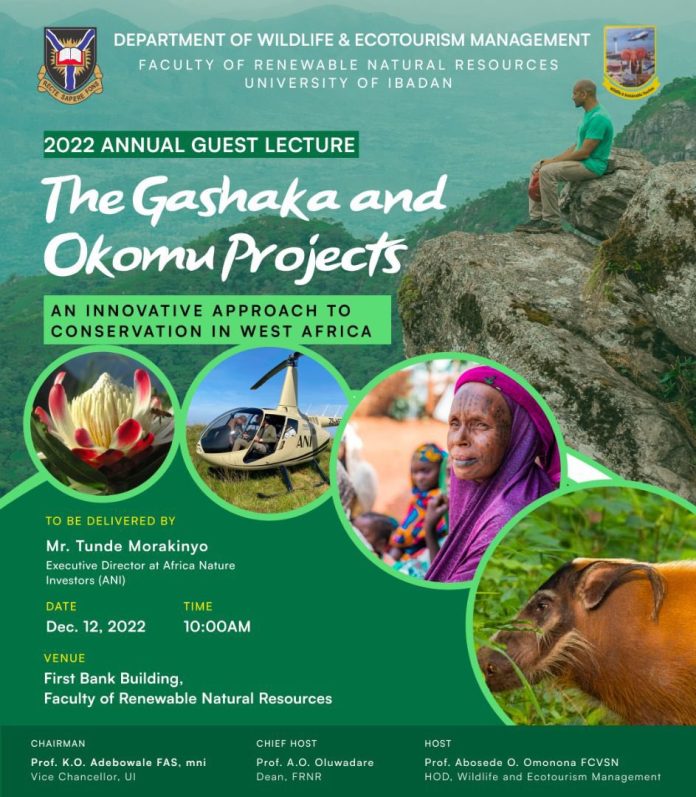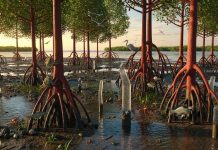Africa Nature Investors (ANI) shared an innovative approach to conservation in West Africa during the 2022 Annual Guest Lecture held by the Department of Wildlife and Ecotourism Management at the University of Ibadan which took place on the 12th of December 2022.
Africa Nature Investors (ANI) is a Nigerian non-governmental organization founded five years ago by a group of Nigerians with a laudable passion for the protection of Africa’s natural resources. These resources as we know are intrinsic to the survival and sustenance of biodiversity as well as the existence and development of humanity.
However, incessant exploitation of these resources poses an imminent danger to the existence of various life forms. Therefore, the steady destruction of our forests and savannah have to be halted without delay.
Tunde Morakinyo, a Tropical Forest Conservation Specialist and one of the four founding trustees of ANI was the guest speaker at the lecture. He began his lecture by highlighting the potential dangers of over-exploiting the wild species “if you cut down all trees, agriculture suffers so we suffer, so many of our medicines come from the forest if we cut down all the forest there is no medicine. So these wild species are critical to our environment yet they are being destroyed for all sorts of reasons”
“And we believe that we have to change this, we can not just stand back and watch the destruction happening because all of us will suffer as humanity. So we came together as Nigerians to protect these wild species in partnership with the local communities” he noted.
Morakinyo further emphasized the fact that we do not need intervention from the outside world before we protect our forests and animals.
Nigeria is endowed with about seven different national parks plus the Yankari game reserve. However, the focus of ANI is on two major projects in Nigeria which are the Gashaka Gunti National Park project and the Okomu National Park project.
The NGO set its sights on these two parks not only to rewild and conserve nature but also to transform these parks into paradisic tourist destinations and research centers.
The Gashaka Gunti National Park is the largest national park in Nigeria, which is situated on the border between Nigeria and Cameron. It extends across a landscape of about 7,000 kilometers. It is bejeweled with trees that stretch high into the sky, mountain grasslands, rainforests, and incredible views, and it houses the Chapawadi, which is the tallest mountain in Nigeria.
The Gashaka National Park has four different ecosystem types which include: Dry Wooden Savannah, Low Land Rainforest, Cloud Forest, and Mountain Grasslands. Sitting on three biodiversity zones in Nigeria, it is the most ecologically diverse park in all of Africa.
“The most important water catchments for the river Benue supporting the livelihoods of millions of people comes from the park, therefore, it is strategic for Nigeria to protect the place” Morakinyo explained
The Okomu National Park, on the other hand, is the smallest national park in Nigeria and one of the last surviving forests in the country. It harbors Nigeria’s most critically endangered species of elephants – the Savannah Elephant and the Forest Elephant, both declining in number.
A management team for the projects which comprises representatives from ANI, the government, and the communities is set to oversee the work which will begin from outside the parks. This is imperative as illegal billion-dollar industrial-scale logging for rosewood trees and timber are ongoing which needs to be curbed before it permeates the parks themselves.
Going further in the lecture, Morakinyo outlined the five key principles which ANI has adopted to achieve its goals, they are:
- To restore a fully functioning park with an intact ecology by eliminating banditry, cattle grazing, and logging. Therefore, park rangers need to be fully equipped with weapons and other necessary gadgets for the protection of the park.
- Co-management with the government as the government can not be solely responsible for the preservation of these parks, all the affected stakeholders need to get involved.
- The parks must be an engine for investment, development, and employment to stop exploitation such as logging
- It has to be financially self-sustaining by keeping the parks safe enough to be attractive to tourists and researchers alike, selling carbon credits from trees planted thereby generating revenue.
- Change the hearts and minds of Nigerians towards nature. Help them see it in a different light and be drawn to it.
He in conclusion called for the support of both the management team and private individuals to help in the various ways they can to see to the actualization of this lofty vision of ANI.




